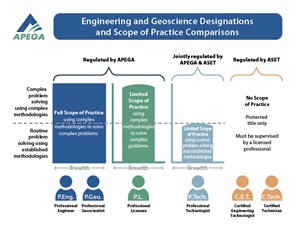When Should You Engage a Professional Engineer or Geoscientist?
As municipalities prioritize infrastructure projects to boost the economy following the pandemic, it is more important than ever to ensure that you are hiring the right professionals for the job — professional engineers and geoscientists, that is — who are licensed and regulated by APEGA.

The Association of Professional Engineers and Geoscientists of Alberta (APEGA) regulates and licenses professional engineers, professional geoscientists, and professional licensees. These professionals are dedicated to the safety and well-being of Albertans, and they help build strong, reliable, and safe communities for the benefit of all citizens and their quality of life.
Their specialized knowledge and adherence to applicable standards; professional engineers and geoscientists aid municipalities during all stages of the infrastructure and facilities lifecycle, including:
- planning
- design
- construction
- operation
- maintenance
No matter your project — whether it's civil, environmental, transportation, commercial, residential, or utility based — licensed professionals have the expertise you require to complete them safely and efficiently.
Like the communities they serve, licensed professionals are directly accountable to protect the interests and safety of the public.
When engaging a team of experts for your next project, we understand that it is not always obvious when you require the services of a professional engineer or professional geoscientist. It also might not be clear what the differences are between APEGA-licensed professionals and technologists.
Understanding this difference and building an integrated team that includes APEGA-licensed professionals is vital to meeting the legal responsibility within the Engineering and Geoscience Professions Act (EGP Act) to ensure the safety of the public is upheld.
How APEGA Professionals Can Help You
-
Licensed professionals can turn your vision into a practical, biddable plan by comprehensively preparing requests for proposals and evaluating bid submissions — it's what they do every day!
-
Because of their training and experience, licensed professionals can ensure that your project plan meets present and future needs without being over or under designed.
-
Licensed professionals know how to balance the costs to build, operate, and safely maintain your assets.
-
Licensed professional can make decisions you can trust because they apply complex problem solving and use sound data analysis when facing technical challenges.
-
As a municipality, you cannot compromise one critical service for another, and licensed professionals can ensure the continuity of water supplies, roads, bridges, electrical grids, and sewers.
-
By analyzing lifecycle options for your project, licensed professionals can consider the cost of operating the asset over its expected life and make recommendations.
-
Licensed professionals can oversee the construction of your asset, as well as the ongoing maintenance, so that infrastructure is built and maintained correctly to ensure longevity and maximum value for taxpayers.
Do You Need a Licensed Professional or a Technologist?
The work of engineering and geoscience is vast. It can range from collecting data to determining if the ground is safe to build on. Some of this work can be done by technologists and technicians; some must be done by licensed professionals. As a project manager, it can be challenging to know which you need, yet it’s critical that you do.
What's the difference?
Although licensed professionals and technologists both perform work within the practice of engineering or geoscience, technologists can’t do the work of licensed professionals. The difference is licensed professionals work independently and take responsibility for their work, whereas technologists must work under the supervision of a licensed professional.
Understanding Scope of Practice
Full Scope of Practice
As defined by the EGP Act, only APEGA-licensed professional engineers and professional geoscientists have the legal right to provide the full scope of engineering and geoscience services,
which allows them to authenticate all technical work and to supervise others on the team.
Limited Scope of Practice
There are others who have been licensed to provide a limited scope of practice within the engineering and geoscience fields: these include professional licensees and professional technologists. They can authenticate only the work that is granted to them within the scope of their limited licence.
Understanding Engineering and Geoscience Designations
Licensed professionals
Due to their advanced education and extensive experience, licensed professionals can work independently. They can solve complex problems using complex methodologies, and they have the legal right and requirement to take responsibility for their work.
Professional engineers and geoscientists are licensed to practise within the full scope of practice as defined in the Engineering and Geoscience Professions Act with no limitations.
Professional licensees are licensed to practise within a restricted scope of practice within engineering or geoscience.
Professional technologists are licensed to practise within a restricted scope within engineering or geoscience that is further limited to routine application of industry-recognized codes, standards, procedures, and practices using established engineering or applied-science principles and methods of problem solving.
Certified Engineering Technologists and Certified Technicians
Certified engineering technologists (C.E.T.s) and certified technicians (C.Tech.s) are key parts of engineering and geoscience teams—an integrated team that operates within a single spectrum of practice. C.E.T.s and C.Tech.s must work under the supervision of a licensed professional who will verify the quality and results of the work and take responsibility for it. They typically work within the routine application of engineering and geoscience procedures and practices.
In addition, technologists and technicians have no defined scope of practice. By law, their work must be assigned, supervised, and approved by a licensed professional.
Which Work is Being Done?
You may not always need a licensed professional. It will depend on the work being done. For example, sampling, measurement, visual inspection, repair of equipment, and operation of equipment may not need a licensed professional. You can check with a licensed professional to assist you in understanding the work being done.
Authentication and Supervisory Requirements
Authentication and Supervisory Requirements
In addition to licensed professionals with full and limited scope of practice, there are also engineering and geoscience technologists who can and do assist with many aspects of project work on the team.
If any of the work being conducted by an engineering or geoscience technologist falls within the scope of practice of licensed professionals, they must – by law – be working under the supervision of a licensed professional, who can review and authenticate all technical work to ensure safe and consistent efforts.
When is Authentication by a Licensed Professional Required?
Review the Authenticating Professional Work Products page to determine whether an output of an APEGA licensed professionals service must be authenticated. A series of overview infographics is also available as a PDF below.
Download the Authenticating Professional Work Products overview (PDF)
Questions?
To check if someone is a professional engineer, geoscientist, or licensee, visit our member directory. You can also see the scopes of practice for professional licensees.
If you’re still not sure which professional your project should use, contact [email protected]. We’re here to help.

